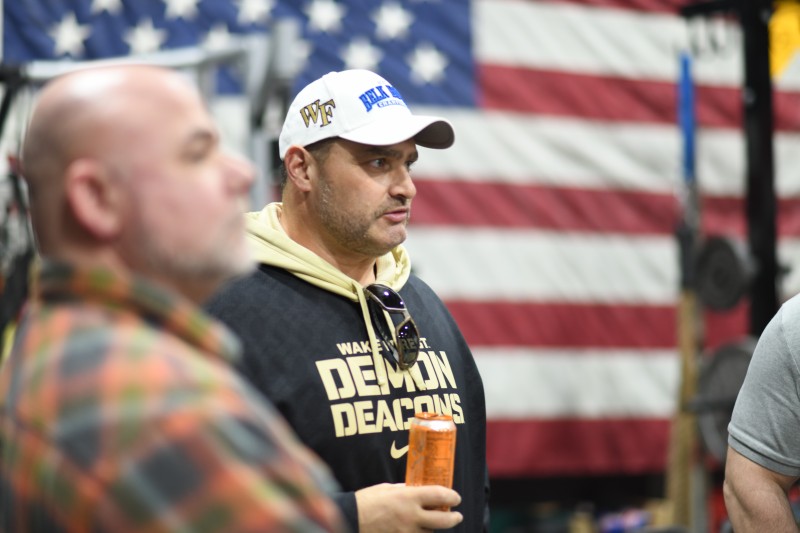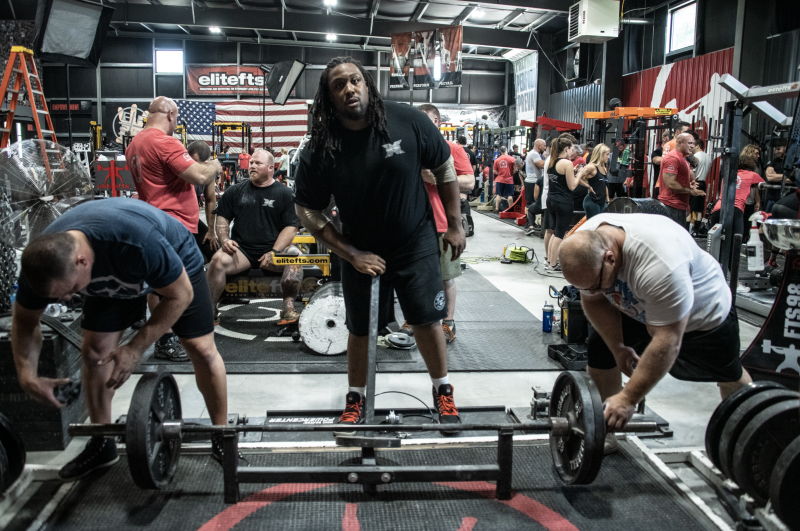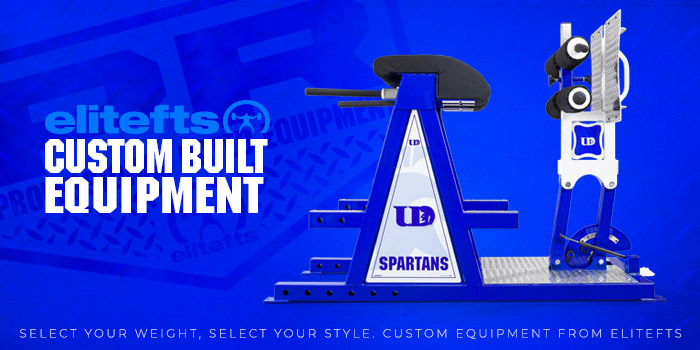
It’s on us. This was a campaign that I took part in a few years ago at my previous employer. It included a video of athletes, coaches, and others discussing sexual harassment and assault. I know this isn't what most strength coaches want to talk about, and it won't be what most of this article is about, but it will be about how it’s on us.
The goal of the campaign was to remind everyone that we all have a part to play to prevent sexual harassment. I’m here to remind us that we all also have a part to play in making our field better and safer for our athletes.
RECENT: Mental Health First Aid Training for Strength Coaches
With this in mind, I'll give five simple ideas that we can all implement today to not just improve our own schools but also improve our profession.

1. Work within your department to increase communication from athletic training to strength and conditioning.
Last weekend, I was honored to be at the wedding of an athletic trainer with whom I used to work. Don’t forget — when someone invites you to their wedding, it's the biggest compliment they can give you (unless one of your assistants asks you to officiate their wedding... but that's for another time).
I was asked to attend this young lady’s wedding, and it was akin to an athletic trainer party. The ACL test that those athletic trainers do was the newest dance, and everyone was iced after the electric slide. I may be lying just a little, but I've heard ad nauseam from strength coaches that all athletic trainers suck. I disagree.
I've met some fine athletic trainers, and most of the ones I’ve worked with are my friends. At times, there have been ones who want nothing to do with our little world, but 90 percent are my close friends. This may not seem like a big deal to many, but how many times have you (and I) seen miscommunication happen between these two departments? It happens too often. If there are trust and respect, both coaches and athletes will see that and we can all have a better working relationship.
2. Support your coaches.
Another mistake I've seen too often is strength coaches who are smarter than the sports coach (or at least they think they are). Here's a reality check — not every coach is a nice person or easy to work with, but you had better work with the coaches, or you’ll be out of the door in this profession. I make it a point to walk by coaches' offices weekly just to say hi.
When an athlete comes to you and says that his or her coach doesn’t get it, how do you respond? I know often in my younger years, I made the mistake of agreeing.
Instead, try this: just listen to the athlete. It's fine to let an athlete vent, but it isn't OK to join in on the complaining. Ask yourself: Are my words going to make the situation better or not? If they aren't, don’t say the words. Also, unless you know why one is doing what he's doing, who do you think you are to judge?
3. Sharpen your saw!
I stole this one directly from Stephen Covey! There aren't any awards for the person who slept in their office the most. The reality is some emails may not get returned today. Who cares? Whenever I'm about to freak out, I ask myself, will this matter in one week, one month, or one year? If the answer is no, I let it go.
I have an assistant right now who can’t stand me (I can’t blame her). She watches me return emails and then delete the email. She asks me, "What if you need that information again?" My answer is, "I won’t, so don’t worry."
RELATED: Grad Assistants: Read This Before Applying Anywhere
Too many strength coaches act as though we are curing cancer. Newsflash: This ain't cancer and we ain't rocket scientists! Somehow we all made athletes stronger before technology became a thing, and at times, we even did a better job at making athletes stronger. I implore you to ask yourself those questions and take some deep breaths. Does whatever you're working on right now matter as much as you think it does?

4. Believe in your system, but don’t be a zealot.
I know that if you work hard in the weight room, you'll be stronger and faster and have fewer injuries, but I know that there aren't any perfect programs. I've seen some great things come and go. In the last 10 years, we've seen 5/3/1, triphasic, 1 X 20, and many other programs come to the front. But let me ask, what did we do before these existed? For the younger coaches reading this, we did programs similar to these. We just didn’t name them.
Back in the dark ages, there were mainly just two schools of thought in strength and conditioning: the HITT people and everyone else. For those who are too young to remember, there was a major break between these two groups, and many actually didn’t speak to one another. I see some of that now, except there are dozens of camps. I've heard people say, "I’m a Boyle guy" or "I do conjugate."
The reality is everyone can teach us something. If you define yourself by the program you use, you're limiting yourself as a coach and as a human. The people who get mad at Mike Boyle for his rants are the perfect example. I've learned a lot from Mike Boyle even though I don't agree with everything he says. Listen to other viewpoints and judge the ideas based on what they are — someone else's ideas.
5. It’s on us to make our athletes safer.
Few like to admit that we're guessing with most of what we do. Yes, they're very educated guesses, but it's still guessing. The doctors we deal with are guessing, too. Think about this: How many times have you had a doctor say he or she can squat 135 pounds? At what depth? At what velocity? Using what stance?
I once had a physical therapist tell me that having an athlete squat 225 pounds should be fine. So, you're telling me that two plates happen to be the exact amount of force that this athlete can handle? It’s weird how rehabilitation is also always done with 3 X 10.
My point here is that we're all guessing and doing our best at guessing. So guess what? It's our responsibility to guess better. I tell my staff all the time that if the physical therapist says an athlete can squat 135 pounds, you have the ability to do 0 to 135 pounds and everything in between. Do what is convenient right now. We must be better than just following arbitrary numbers. This comes to running and conditioning as well. If an athlete isn't ready for something, don't make them do it! This is called ethics.
I know this is a short list of how we can make things better. It's also an incomplete list, as we've all seen things that can help make our jobs, schools, and industry better. I implore you to find ways to help those around you succeed.











A sprinter can exhibit forces of up to 6x BW. I think I remember hearing a triple jumper can produce forces up to 9x BW. How much force do you think a runningback (typically between 180-200 lbs) produces when cutting and getting hit by a linebacker at the same time?
How are we supposed to train the body to produce and absorb those kinds of forces if we never let them squat over 225? I'm not saying we should solely focus on squatting to produce world record squats, but come on; we've got to use some common sense!
Good article, Hamer!
I agree with you completely on point number one about athletic trainers. I have worked with some excellent athletic trainers and have had very good relationships with them. Some times when I talk about negative experiences, I think people take it that I hate all athletic trainers, but that couldn't be further from the truth.
I have worked with some that don't care and a few that think they know more about S&C than any strength coach that walks on this planet which then tried to tell me how I should program and that the technique I coach is wrong. But, most I have had good relationships with and was always happy to work with them.